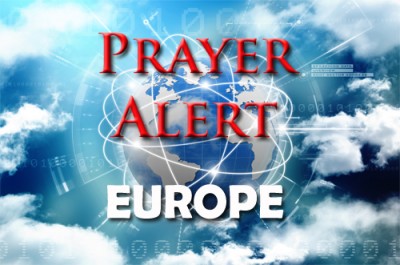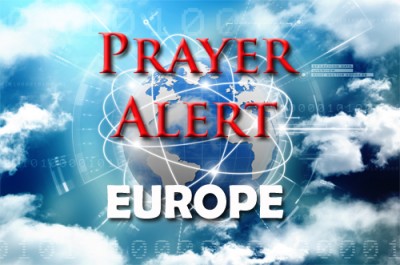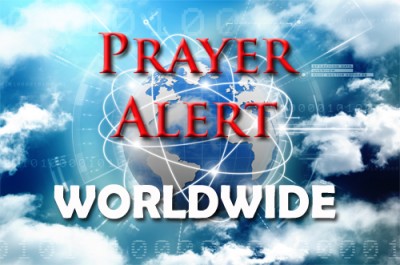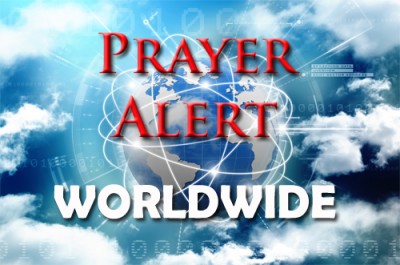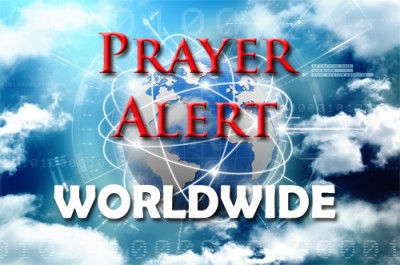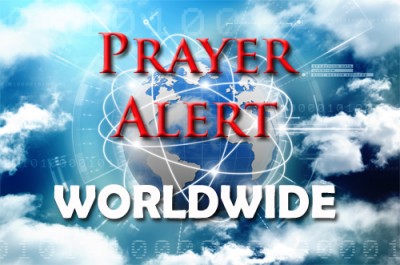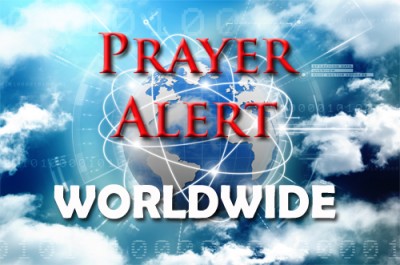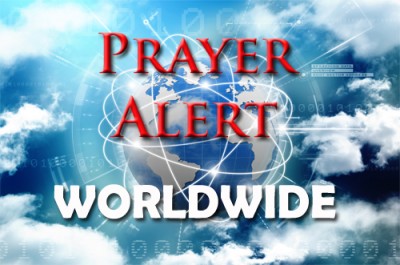Russia: Putin accused of deception
30 Apr 2020In Russia’s underfunded health system, staff who transferred to critical care duties were made to write resignation letters after refusing to work with infected patients without protection. Ambulances queue for hours to deliver patients to overloaded hospitals without oxygen, while desperately-needed ventilators are bought up by billionaires to install in their mansions. The president of a medical trade union who said ‘The government is openly lying’ was later detained by police on a trip to investigate hospital supplies. ‘Putin doesn’t care about loss of life, only loss of power’, said a human rights campaigner. St Petersburg has patients lying on mattresses in corridors. Doctors were incensed when Putin dispatched a planeload of medical supplies to New York when they were having to buy their own equipment online. Pray for Putin’s priority to be human lives, not his popularity or finance agendas.
Denmark: a Bible which does not mention Israel
30 Apr 2020The Danish Bible Society has released a new translation of the Bible that omits dozens of references to Israel. It rewrites ‘the land of Israel’ as ‘the land of the Jews’ and the ‘People of Israel’ simply as ‘the Jews’. Defending the deletions, the society said they prevent confusion with the modern-day country, but other countries' names from that time, such as Egypt, have not been changed. There are 59 omissions out of 60 references to Israel in the Greek origin for New Testament texts. In other places, references to Israel are translated as referencing all of humanity. The Song of Ascents from the Book of Psalms, a popular Shabbat hymn for Jews, originally states, ‘He who watches over Israel will neither slumber nor sleep.’ The new translation replaces Israel with the word ‘us’.
China and the pandemic
30 Apr 2020China filed a patent for a drug seen as one of the best potential weapons against coronavirus the day after Beijing confirmed coronavirus was transmissible to humans. The revelation that it moved so fast fuels concerns about a cover-up of the pandemic when it erupted and suggests that China’s understanding of the virus was far more advanced than the impression given in public. The chairman of the US foreign affairs select committee joined the growing global call for a full, independent inquiry into China’s role, saying, ‘It is quite clear there is an awful lot that we do not know about the emergence of this disease and the responses to it. We all need to learn the lessons of the outbreak so that the international community can respond better in the future.’ Leaked documents showed that China’s officials knew they faced an epidemic but delayed warning the public for six days.
Lebanon: 'night of the Molotov'
30 Apr 2020On 29 April, banks across Lebanon were torched and vandalised by hundreds of demonstrators during the second night of protests over their currency recently losing 50% in value. The largest and most violent protests were in Tripoli, the second-largest, and poorest, city. One 26-year-old protester died from army gunshot wounds and many were hospitalised from heavy-handed responses to protests. Human Rights Watch called for transparent investigations into the death. Poverty has worsened during the nationwide pandemic lockdown. The social affairs minister estimated that 75% of the population require aid in a country of about six million - but that aid has been meagre and slow to come. Massive anti-government protests began in October but paused during lockdown. Now they are angrier and more desperate. On 30 April the Daily Star reported 23 soldiers wounded overnight in Tripoli and Sidon.
United Arab Emirates
30 Apr 2020The UAE is a federation of seven emirates, ruled by tribal Sheikhs or Emirs. The largest, richest emirate is Abu Dhabi with significant oil and gas reserves. The development of oil and financial industries has brought fabulous wealth and rapid modernisation. Millions from around the world work there. The pride of status and prestige is marked by using money to gain personal power and glory. Because Islam dominates public life, Christian converts often lose their inheritance and parental rights, are forced to marry, are fired or are required to work for free. To avoid the death penalty or other penalties, they often feel that they must hide their faith or flee to another country due to fears of persecution. Pray that the Christian English, Arabic, Urdu, Filipino and Indian language worship groups and congregations will attract newcomers even though evangelism is prohibited, and that non-Muslims can worship in dedicated buildings or private homes.
Brazil: president's troubles
30 Apr 2020In 2018 Brazilians elected controversial Jair Bolsonaro as president to break up a corrupt political class. But he has antagonised political forces, upset environmentalists by severely damaging the Amazon, dismissed journalists as peddling fake news, and badly mishandled the coronavirus pandemic fearing what shutdowns might do to Brazil's economy. He dismissed the seriousness of the outbreak with self-importance and backed anti-quarantine protests. Then he fired his health minister, who had become more popular than himself. With irregular testing, Brazil reported 5,017 Coronavirus deaths, hundreds more than in China. On 26 April Brazil's supreme court opened an enquiry into Bolsonaro’s son being involved in illegal schemes and fake news rackets, and Brazil's justice minister accused Bolsonaro of meddling in law enforcement and quit. The next day Bolsonaro named a family friend, Alexandre Ramagem, to head the federal police. Today the allegations of improper interference by the outgoing justice minister are triggering impeachment and criminal investigation rumours. See
India: US religious rights report
30 Apr 2020The US Commission on International Religious Freedom (USCIRF) wants India, Nigeria, Russia, Syria and Vietnam to be put on a religious freedom blacklist and join the ranks of ‘countries of particular concern’. That would make them subject to sanctions if they do not improve their records. Countries already on this list include China, Iran, and North Korea. The commission noted that India’s nationalist government ‘allowed violence against minorities and their houses of worship to continue with impunity and tolerated hate speech and incitement to violence.’ Minority Christians have been among those targeted. It remained unclear whether the state department would follow the USCIRF's advice because India is an increasingly close US ally. The USCIRF's annual report is watched worldwide as an independent way of monitoring, analysing and reporting on threats to religious freedom abroad.
Global: famine in refugee camps
30 Apr 2020Refugee-led organisations play important but neglected roles in providing protection and assistance to other refugees and host communities. Now they are on the front line of the COVID-19 response in camps and cities around the world as other organisations withdraw. Refugees distribute food and non-food items, provide information, serve as community health workers, take part in tracking and monitoring, and influence behavioural norms. As formal humanitarian governance struggles to respond to the direct and indirect consequences of the coronavirus in both camps and urban areas, their work is more vital than ever. In Arua, a bustling town now surrounded by three refugee camps, urban refugees also face severe food shortages. The restrictions on movement have not only affected their livelihoods but their ability to go back to the refugee camps where they are registered to receive the monthly food rations on which they depend.
